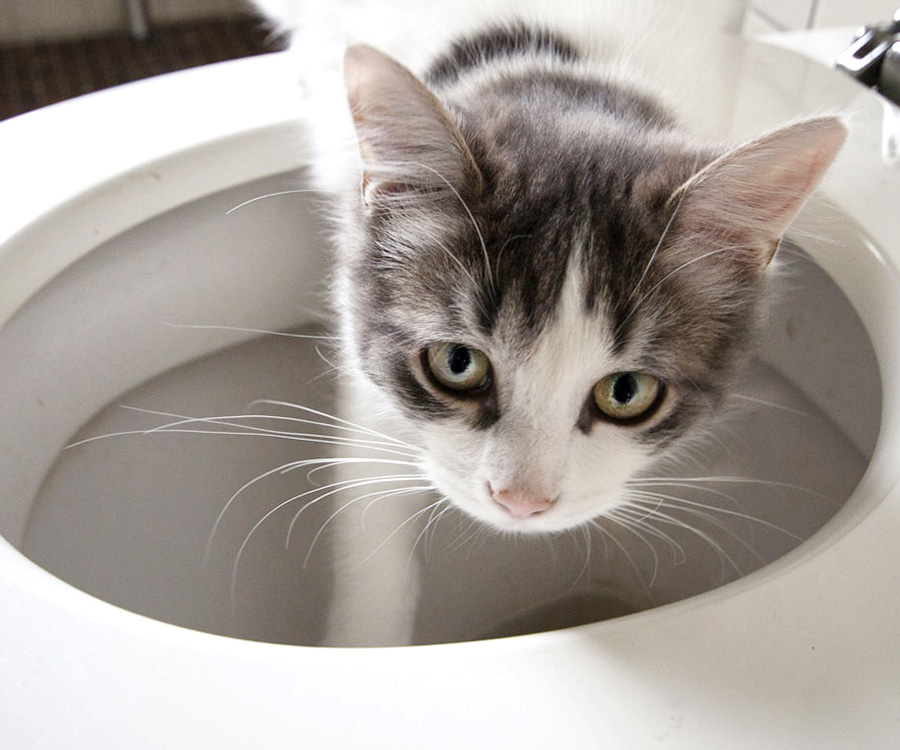Avoid Bathroom Emergencies: Don't Flush Cat Poop Down Your Toilet - Expert Guidance
Avoid Bathroom Emergencies: Don't Flush Cat Poop Down Your Toilet - Expert Guidance
Blog Article
The content which follows on the subject of Can You Flush Cat Poop Down The Toilet? is amazingly enlightening. Give it a go and make your own ideas.

Intro
As feline owners, it's essential to bear in mind just how we get rid of our feline friends' waste. While it might seem convenient to purge feline poop down the commode, this method can have harmful effects for both the environment and human wellness.
Alternatives to Flushing
Luckily, there are safer and a lot more responsible means to get rid of cat poop. Think about the following choices:
1. Scoop and Dispose in Trash
The most usual technique of dealing with pet cat poop is to scoop it into an eco-friendly bag and throw it in the garbage. Be sure to make use of a dedicated clutter scoop and take care of the waste immediately.
2. Use Biodegradable Litter
Select biodegradable cat clutter made from materials such as corn or wheat. These clutters are environmentally friendly and can be securely thrown away in the trash.
3. Bury in the Yard
If you have a backyard, take into consideration burying feline waste in a designated location far from veggie yards and water sources. Make certain to dig deep enough to avoid contamination of groundwater.
4. Mount a Pet Waste Disposal System
Purchase a family pet waste disposal system particularly made for feline waste. These systems make use of enzymes to break down the waste, reducing odor and environmental effect.
Health and wellness Risks
Along with ecological problems, purging pet cat waste can likewise present health risks to people. Feline feces might contain Toxoplasma gondii, a bloodsucker that can trigger toxoplasmosis-- a potentially serious illness, particularly for pregnant women and individuals with weakened body immune systems.
Environmental Impact
Purging pet cat poop presents dangerous virus and bloodsuckers right into the supply of water, posing a considerable risk to water ecological communities. These contaminants can adversely impact marine life and concession water quality.
Final thought
Accountable pet dog ownership expands past giving food and shelter-- it additionally includes proper waste monitoring. By avoiding flushing cat poop down the bathroom and selecting different disposal methods, we can reduce our ecological impact and protect human health and wellness.
Why You Should Never Flush Cat Poop Down the Toilet
A rose by any other name might smell as sweet, but not all poop is created equal. Toilets, and our sewage systems, are designed for human excrement, not animal waste. It might seem like it couldn’t hurt to toss cat feces into the loo, but it’s not a good idea to flush cat poop in the toilet.
First and foremost, assuming your cat uses a litter box, any waste is going to have litter on it. And even the smallest amount of litter can wreak havoc on plumbing.
Over time, small amounts build up, filling up your septic system. Most litter sold today is clumping; it is made from a type of clay that hardens when it gets wet. Ever tried to scrape old clumps from the bottom of a litter box? You know just how cement-hard it can get!
Now imagine just a small clump of that stuck in your pipes. A simple de-clogger like Drano isn’t going to cut it. And that means it’s going to cost you big time to fix it.
Parasitic Contamination
Believe it or not, your healthy kitty may be harboring a nasty parasite. Only cats excrete Toxoplasma in their feces. Yet it rarely causes serious health issues in the cats that are infected. Most people will be fine too if infected. Only pregnant women and people with compromised immune systems are at risk. (If you’ve ever heard how women who are expecting are excused from litter cleaning duty, Toxoplasma is why.)
But other animals may have a problem if infected with the parasite. And human water treatment systems aren’t designed to handle it. As a result, the systems don’t remove the parasite before discharging wastewater into local waterways. Fish, shellfish, and other marine life — otters in particular — are susceptible to toxoplasma. If exposed, most will end up with brain damage and many will die.
Depending on the species of fish, they may end up on someone’s fish hook and, ultimately on someone’s dinner plate. If that someone has a chronic illness, they’re at risk.
Skip the Toilet Training
We know there are folks out there who like to toilet train their cats. And we give them props, it takes a lot of work. But thanks to the toxoplasma, it’s not a good idea.

As a serious person who reads about How to Dispose of Cat Poop and Litter Without Plastic Bags, I think sharing that excerpt was a smart idea. If you please take a moment to promote this write-up if you liked it. Thanks a bunch for your time. Don't hesitate to check up our blog back soon.
Call Today Report this page